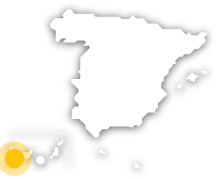It is practised in the island of La Gomera, one of the Canary Islands, and involves whistling in Spanish. It replaces vowels and consonants with whistling. Thus, two differentiated whistles replace the five Spanish vowels, and another four, the consonants. The tone of the whistle and the interruption or continuity of the same is what tells each syllable apart. The whistled language can convey any message and even identify the origin of the whistler according to its local variant.It is understood by almost all the island’s population and has been taught in schools since 1999. For this reason, the majority of the inhabitants of La Gomera practice it, especially the oldest and youngest generations. Likewise, the whistling is used in many festivities, including religious feasts in La Gomera.








